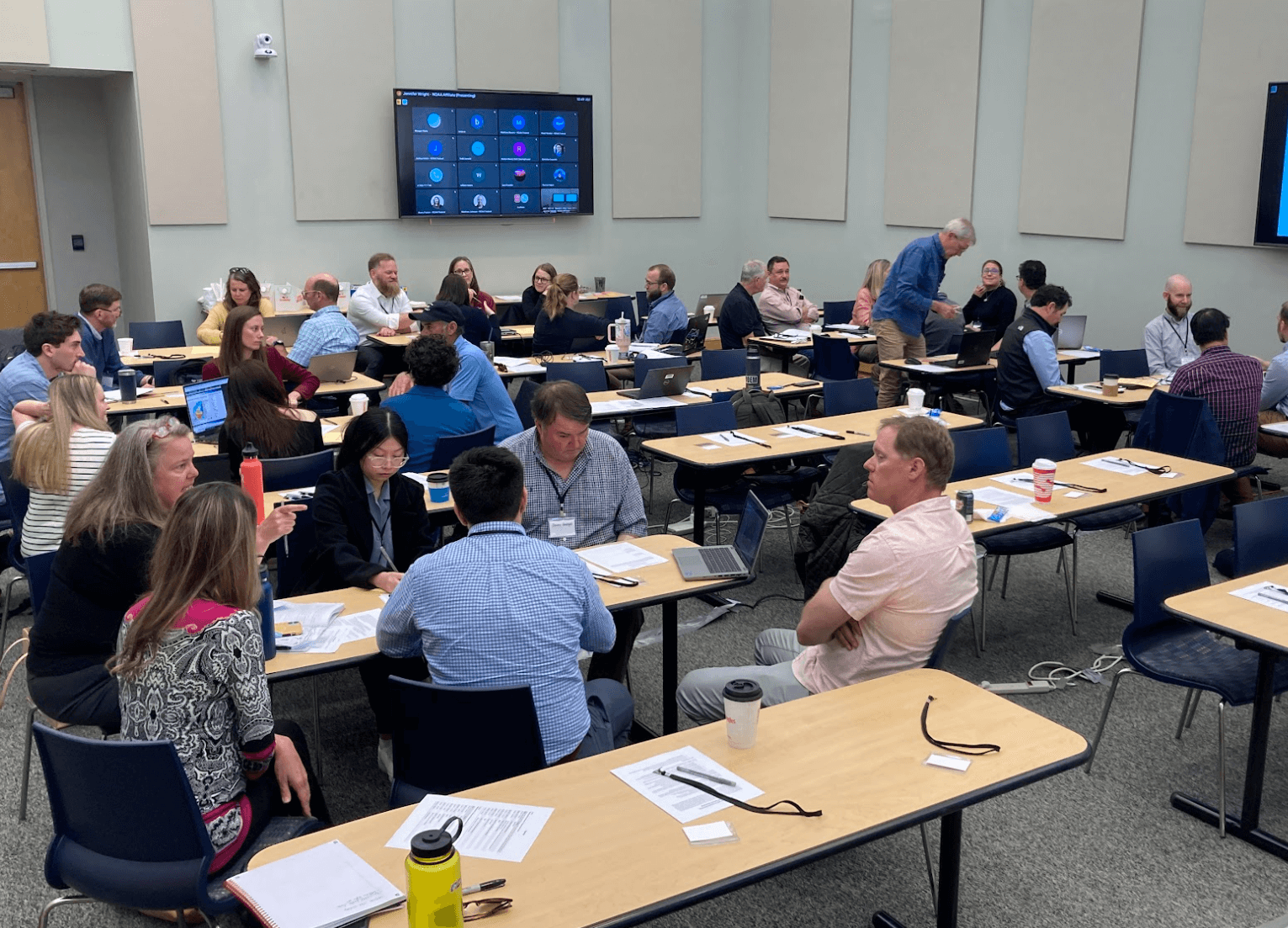
In a recent workshop hosted by NCCOS, experts from NOAA, BOEM, and other key partners came together to discuss the future of marine spatial planning in federal waters off the coast of Virginia, North Carolina, and South Carolina. The focus of the workshop was to discuss existing data available for seven different ocean sectors, identify missing data sources that should be included in the inventory, and highlight future data needs for sighting offshore wind turbines.
One major focus was the need for comprehensive data related to marine resources. Experts presented detailed information on protected species and essential fish habitat, including data on marine mammals like bottlenose dolphins and North Atlantic right whales, sea turtles, and highly migratory fish. Experts stressed the significance of pinpointing Critical Habitat Areas and Biologically Important Areas like fish nurseries and spawning grounds.
The workshop attendees also addressed the need for bird migration pattern data, wetland conservation areas, and the distribution of deep-sea coral reefs and hard bottom habitat. Participants highlighted the importance of integrating habitat and species distribution data into spatial planning efforts to mitigate the impact of offshore wind development on sensitive ecosystems.
Another topic of discussion revolved around the need for additional data related to cultural and social uses of the environment and archaeological sites. Experts identified gaps in information pertaining to petroglyphs, social vulnerability, boat-making locations, and unexploded ordinances. They underscored the importance of comprehending public transportation usage patterns and safeguarding historic navigation aids such as long-range towers.
During the workshop, physical and geological oceanographic data in the region were identified, including sediment composition, coastal erosion measurements, ocean currents, and sea level rise projections. Experts noted several data limitations and emphasized the need for additional studies to create higher-resolution seabed maps and better understand marine hazards and sand movement. Participants stressed the importance of including detailed erosion rate models and up-to-date bathymetric data.
For the industries sector, there is a need for more information on aspects such as onshore transmission infrastructure and ferry routes. Participants raised issues about outdated data on submerged pipelines and incomplete vessel traffic data.
The workshop concluded with several key take-aways:
- Establishing regional data coordination partnerships could greatly benefit spatial planning efforts. It is essential to maintain long-term collaborative conversations and keep data layers up-to-date.
- Harmonizing data collection methods across Virginia, North Carolina, and South Carolina presents a challenge. Data collection occurs at various scales within the region and the data is not always readily interoperable, but it is necessary for comprehensive planning.
- The process should consider cumulative regional impacts and dynamically update models with the best available data.
- This spatial planning effort holds value beyond offshore wind projects and can benefit many future initiatives across a range of ocean sectors.
Participants emphasized the importance of advancing wind energy responsibly while protecting biodiversity and promoting cooperative ocean use. The workshop report and ongoing endeavors aim to provide a comprehensive data inventory and support collaborative planning for offshore wind development in Virginia, North Carolina, and South Carolina.
For more detailed information, please access the full report here.

